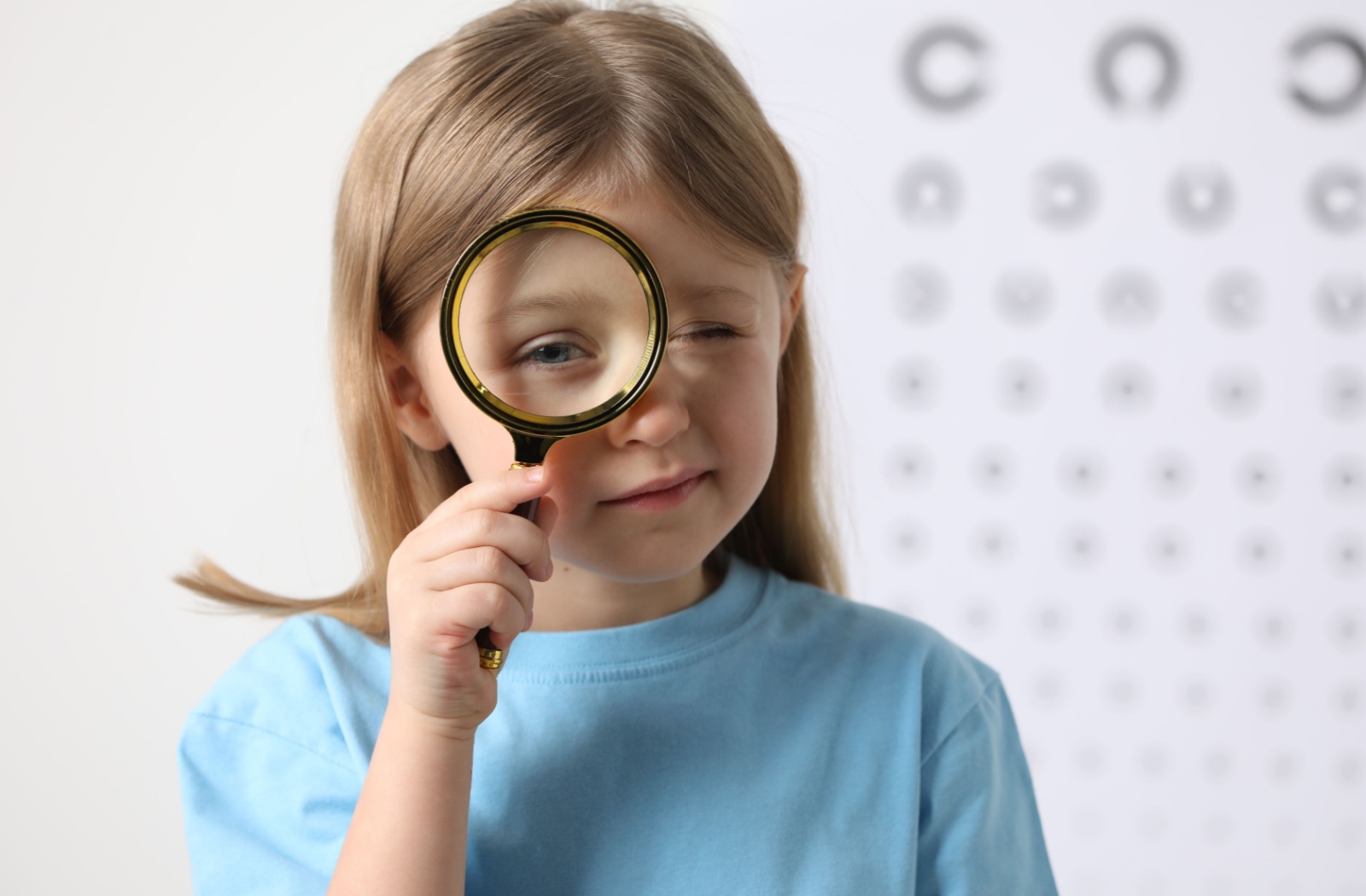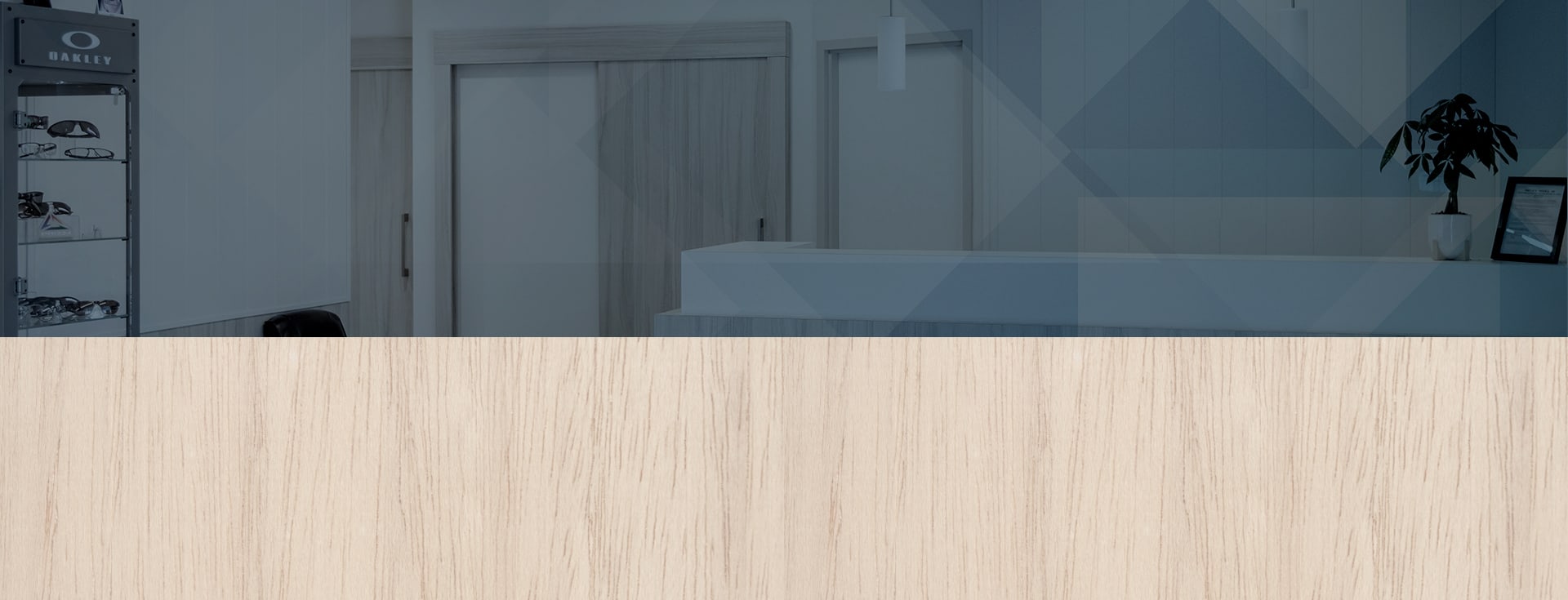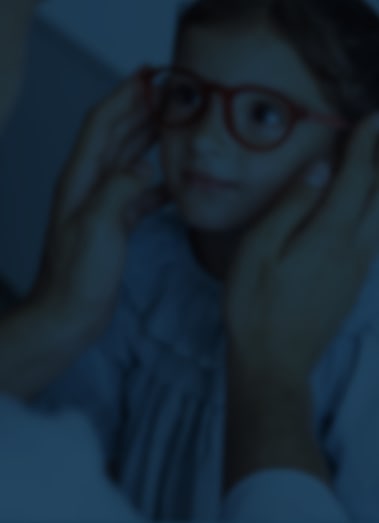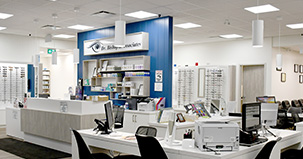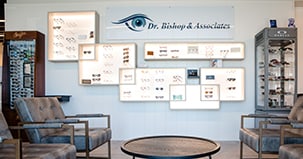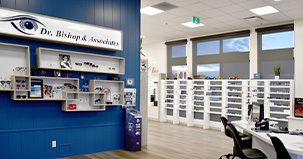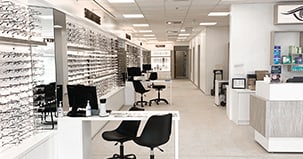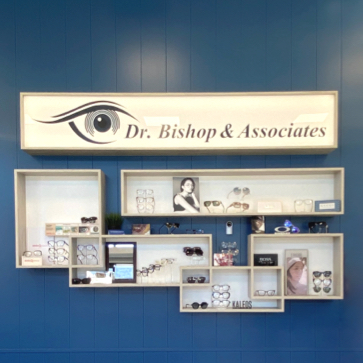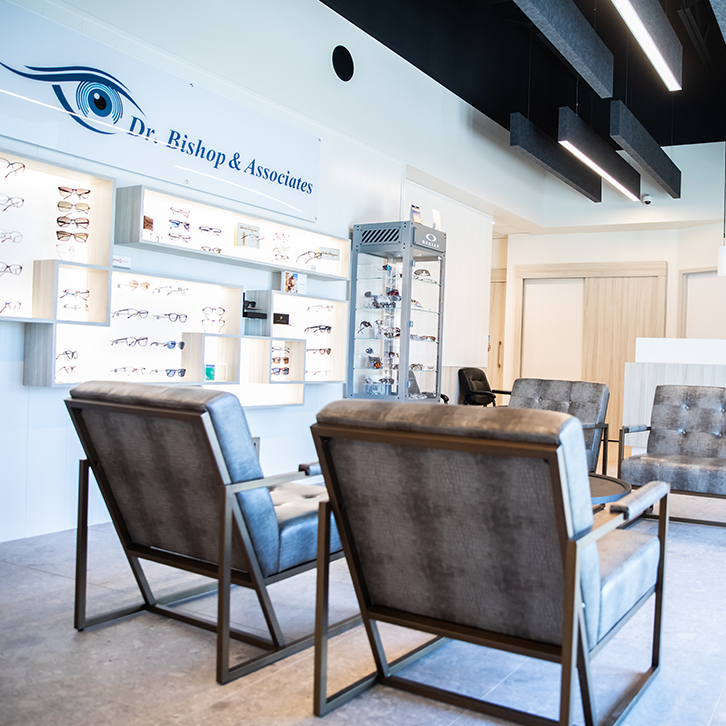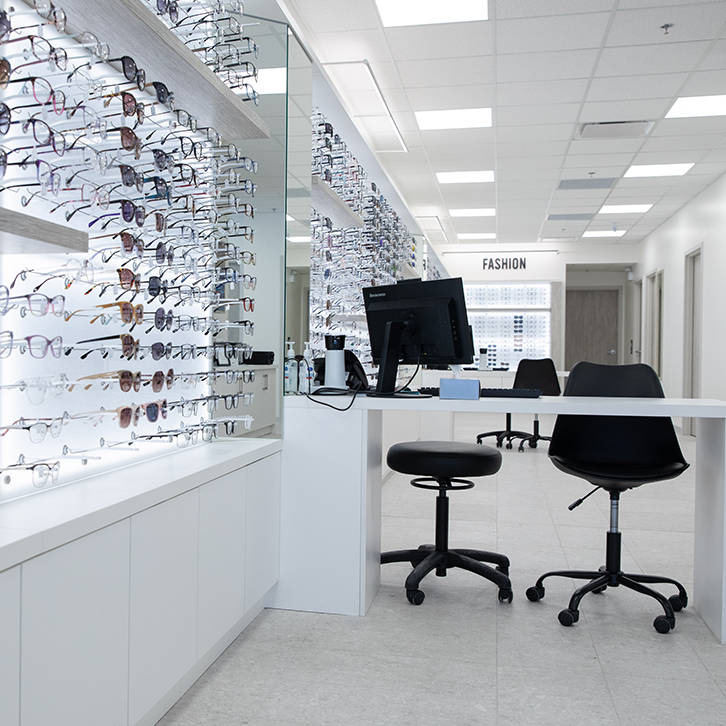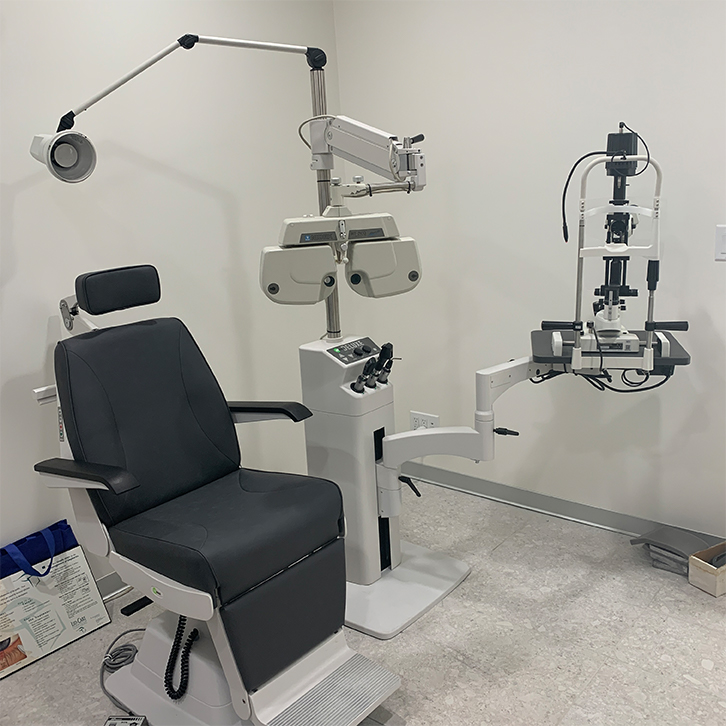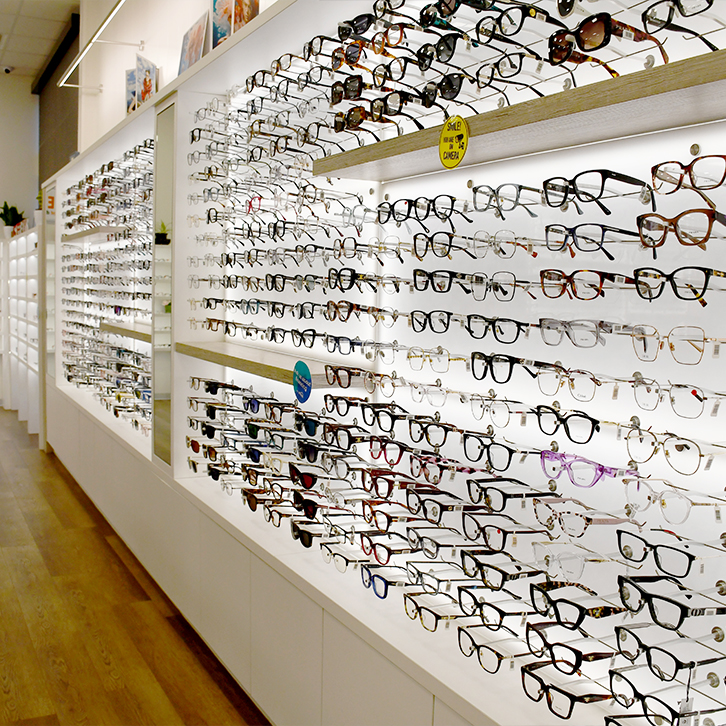In a world where screens dominate our daily lives, myopia, or nearsightedness, has become a growing concern for parents and individuals alike. Whether you’re a parent worried about your child’s eyesight or someone experiencing the effects of myopia yourself, understanding how to manage this condition and slow its progression is crucial.
Myopia can be managed with a personalized treatment plan that may incorporate specialized eyeglass lenses, specialty contact lenses, certain eye drops, and lifestyle changes. At Dr. Bishop & Associates, our skilled optometrists can help prevent myopia progression with a customized myopia management plan.
What Is Myopia?
Myopia, commonly known as nearsightedness, is a vision condition where distant objects can appear blurry while close objects are seen clearly. This refractive error occurs when the eye shape causes light rays to bend inaccurately, focusing images in front of the retina instead of directly on it. Myopia often begins in childhood and can progress over time, sometimes quite rapidly.
With the prevalence of digital devices increasing screen time and children spending less time outdoors, myopia has become more common. Studies indicate that by 2050, nearly half of the global population may be myopic.
Myopia can impact academic performance and overall quality of life. Children with undiagnosed myopia may struggle in school due to vision difficulties. For adults, myopia can limit certain activities or require frequent prescription changes.
Symptoms of myopia can include:
- Blurred vision
- Headaches
- Eye strain or fatigue
- Squinting
A children’s general eye exam can diagnose myopia early and help outline the management techniques right for your child’s unique eyes.
At What Age Does Myopia Progress the Most?
Myopia progression is most rapid during childhood, typically between ages 6 and 12. During these formative years, the eyes are still developing, making them more susceptible to changes in vision. Early detection and intervention during this period are critical to managing myopia effectively.
Regular eye exams during childhood can help identify myopia at its onset. Staying proactive about eye care can prevent unexpected changes and maintain optimal vision into and throughout adulthood.
Can Myopia Be Cured?
Myopia treatments focus on correcting vision and slowing progression rather than reversing the refractive error.
Currently, there is no cure for myopia, but effective management and control strategies can significantly improve vision and prevent further deterioration.
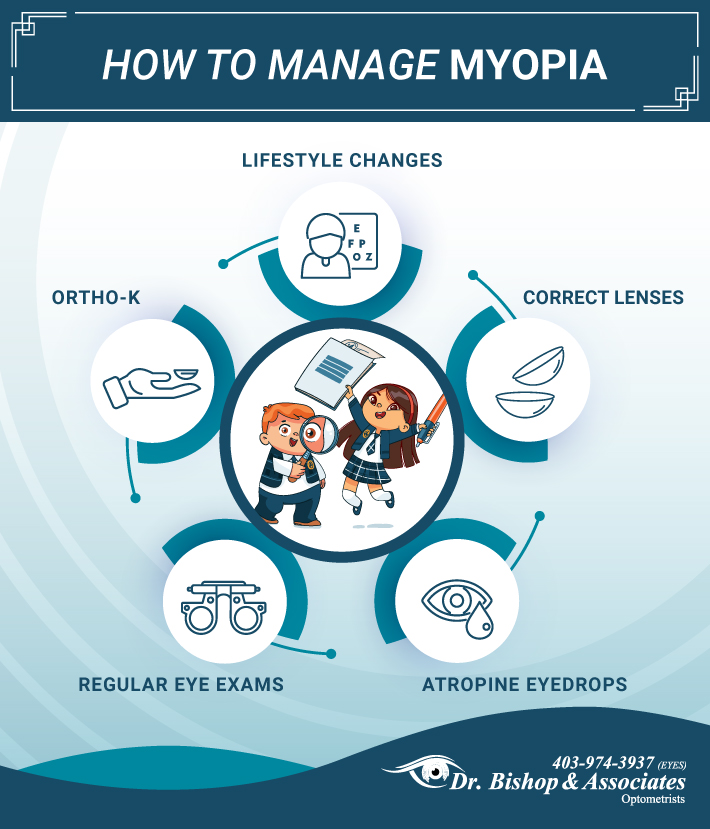
How Do You Manage Myopia?
Myopia management refers to the clinical care offered by eye doctors to help slow the progression and advancement of myopia. The goal is to prevent significant vision impairment in adulthood and reduce the risk of eye-related complications such as retinal detachment or cataracts.
Management can include a variety of treatments, from special eyeglasses and contact lenses to eye drops and lifestyle changes. At Dr. Bishop & Associates, we use a variety of management methods. After consulting you and your child, we can help determine the best management routes based on your child’s age, prescription, and comfort with contacts or eye drops.
Regular Eye Exams
Regular eye exams are a fundamental component of myopia management, providing crucial insights into eye health and the need for updated prescriptions. A cornerstone of treatment, they help us monitor myopia progression, check for new or worsening eye conditions, and make any adjustments to the developing eye.
Corrective Lenses
Corrective lenses, such as glasses or contact lenses, are standard tools for managing myopia. These lenses help refocus light on the retina, providing clearer vision. For some, contact lenses offer convenience and a fuller field of vision, particularly for active individuals or those who prefer not to wear glasses.
For glasses that help manage myopia, we recommend:
For contacts, we recommend:
Ortho-K
Orthokeratology, or ortho-k, is a myopia control method involving specially designed contact lenses worn overnight. These lenses temporarily reshape the cornea, allowing for clear vision during the day without needing glasses or contacts.
Atropine Eye Drops
Atropine eye drops were typically used to treat amblyopia but are now gaining attention for their role in controlling myopia. Low-dose atropine drops have been found effective in slowing myopia’s progression with minimal side effects.
Lifestyle Adjustments
Lifestyle adjustments can play a significant role in managing myopia. We recommend:
- Increasing outdoor time: Encouraging children to spend more time outdoors has been linked to a reduced risk of developing myopia. Natural light exposure and engaging in activities can positively impact eye development. It is recommended that children spend at least 2 hours a day outdoors.
- Monitoring screen time: Limiting screen time and ensuring proper ergonomics during device use are essential steps. To reduce screen-related eye fatigue, use the 20-20-20 rule—every 20 minutes, take a 20-second break to look at something 20 feet away.
- Eating the rainbow: Consuming foods rich in omega-3 fatty acids, such as fish and flaxseeds, can improve eye health. Additionally, incorporating leafy greens and colourful fruits ensures a good supply of antioxidants, which protect the eyes.

How Dr. Bishop & Associates Can Help
Understanding and managing myopia is vital for maintaining clear vision and ensuring a high quality of life. You or your child can take charge of your visual health by adopting proactive measures and exploring myopia control options.
Our team at Dr. Bishop & Associates is here to help you with all your eye concerns, including myopia management. Book your appointment today.

